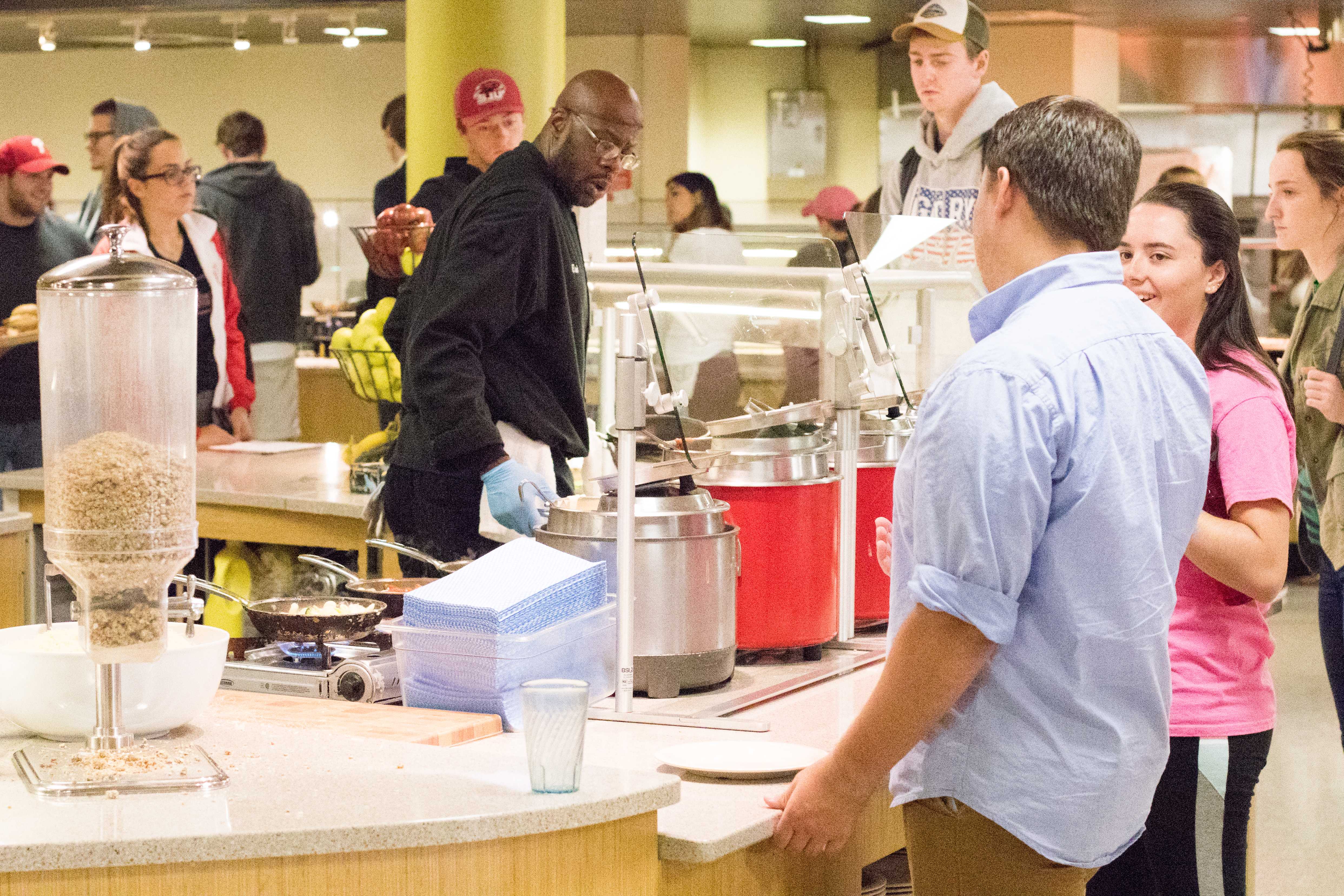St. Joe’s students bring leftover food to homeless shelters
The Food Recovery Network (FRN) at Saint Joseph’s University takes leftover food from Campion Dining Hall to homeless shelters around the city of Philadelphia each week. The organization was formed in 2014 by students.
The St. Joe’s chapter of FRN is part of a national organization that was established at the University of Maryland in 2011. Food marketing major, Madison Smith, ’17, is the current president of the St. Joe’s chapter.
“I always had an interest in fighting hunger and feeding those who are homeless and in need for food,” Madison Smith said.
Every Tuesday, Wednesday, and Thursday night Smith and a group of student volunteers collect food from Campion dining hall.
“The chefs set aside food that would have regularly been thrown away and they refrigerate it and keep it at proper food temperature,” Madison Smith said.
“We transfer the food from big containers that they have into smaller trays so it’s easier for us to handle.”
Once the food is ready to go, volunteers personally deliver the food to one of several area locations. The FRN’s executive board member, Caitlin Clark,

’17, said that Aramark, the university’s main food service provider, was initially hesitant when students first approached the company with the idea to recover food from the dining hall.
“Once they realized that we are responsible they became more cooperative, but before that it was difficult,” Clark said.
At first, the recovery network was only allowed to take leftover food once or twice a week and students had to be trained on how to do the process.
Any charitable donation that involves food is protected from liability thanks to the Bill Emerson Good Samaritan Food Donation Act, according to FRN executive board member, Jimmy Smith ’17. FRN has now established a relationship with Aramark and the kitchen staff in order to bring volunteers to the back of the dining hall.
“I think it’s a good thing,” said Mike McNeil, the head chef at Campion. “Instead of us wasting the food, we have food that can go to a shelter and help other people. They are doing a good job at it.”
Another step-back for the recovery volunteers was the fact that some shelters in Philadelphia only accept packaged foods, according to Clark.
“That’s what we are trying to work on with Aramark too.” Jimmy Smith said. “It’s trying to get the pre-packaged foods that you see in Campion.”
“We weren’t able to donate to them because [other shelters] were so specific in their requirements,” Clark said.
Currently, FRN delivers food to My Brother’s House shelter in south Philadelphia, and Share Food Program, a nonprofit, in Allegheny West. Khabeer Rashad, a chef in My Brother’s House, explained that the food brought by the recovery network is useful to prepare bigger meals for residents.
“We only get food from another school in Philly, Saint Norbert’s Church and Saint Joseph’s,” Rashad said.
The FRN would like to reach out to even more shelters in the area, and the organization plans to collaborate with other universities in the area, such as Villanova University, Drexel University and The University of Pennsylvania in order to make a bigger impact.
“We are all serving a similar cause,” Jimmy Smith said. “Whether that is volunteering at shelters together or trying to get food from a stadium.”













































